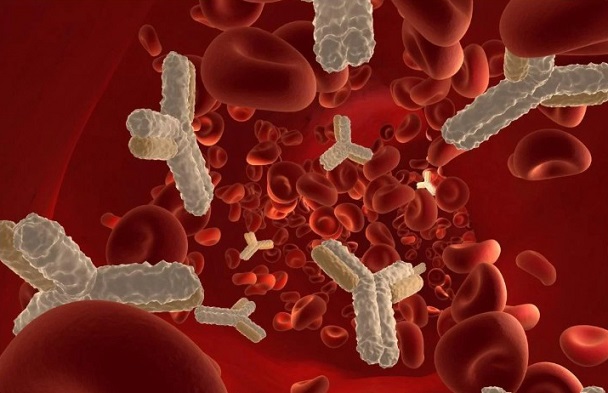German and Swiss Researchers Find That Long COVID Autoantibodies Disrupt Heart Rhythm and Blood Pressure
Nikhil Prasad Fact checked by:Thailand Medical News Team Nov 25, 2025 2 months, 4 weeks, 1 day, 15 hours, 6 minutes ago
Medical News: Autonomic Problems Emerging in Long COVID
A new study has uncovered how certain immune proteins—known as autoantibodies—might be driving the strange mix of dizziness, rapid heartbeat, poor exercise tolerance and blood pressure swings seen in people suffering from Long COVID. Researchers from the University of Witten/Herdecke in Germany, DRV Clinic Königsfeld, Hannover Medical School, Fraunhofer Institute for Toxicology and Experimental Medicine, Universitätsklinikum Schleswig Holstein, CellTrend GmbH, and the University Hospital Basel conducted one of the most detailed investigations to date into how the immune system can interfere with the body’s automatic regulation of vital functions. Their work shows that unique immune markers called anti GPCR autoantibodies appear to disrupt the balance between the sympathetic and parasympathetic nervous systems. This
Medical News report highlights why this matters and what it reveals about persistent symptoms in Long COVID patients.
 German and Swiss Researchers Find That Long COVID Autoantibodies Disrupt Heart Rhythm and Blood Pressure
What the Study Found About Autoantibodies
German and Swiss Researchers Find That Long COVID Autoantibodies Disrupt Heart Rhythm and Blood Pressure
What the Study Found About Autoantibodies
The research team analyzed blood samples from 105 Long COVID patients and discovered eight key autoantibodies involved in autonomic regulation. These included antibodies targeting receptors such as AGTR1, ADRB1 and ADRB2, muscarinic M1 and M3 receptors, and especially the chemokine receptor CXCR3.
The study team found that patients with higher levels of these antibodies showed abnormal heart rate variability, a clear sign of autonomic imbalance. Antibodies such as ADRB1, ADRB2, AGTR1 and M3 were linked to increased markers of parasympathetic activity, while high levels of CXCR3 antibodies had the opposite effect—reducing parasympathetic tone and enhancing sympathetic stress responses, especially during nighttime hours. Patients with elevated CXCR3 and M1 antibodies also experienced stronger blood pressure surges during exercise tests, and CXCR3 antibodies were associated with higher 24 hour mean arterial pressure.
Why This Matters for Long COVID Symptoms
The findings explain why many Long COVID patients struggle with dizziness, heart palpitations, breathlessness and profound exercise intolerance. The study also found that these autoantibodies did not directly damage heart cells. Instead, they seem to act on a system wide level, influencing nerves, vessels and inflammatory pathways. Elevated CXCR3 antibodies also tended to occur in people who had more severe initial COVID-19 infections, linking early disease severity with later immune dysfunction.
Conclusion
This study provides strong evidence that immune system disruption plays a major role in the persistent autonomic problems of Long COVID. Autoantibodies targeting GPCR receptors appear to disturb the body’s natural balance between sympathetic “fight or flight” signals and parasympathetic “rest and recover” functions, a
ffecting heart rhythm and vascular control. These results also suggest that the heart itself may not be the primary target; instead, the antibodies may be acting on nerves and blood vessels throughout the body. Understanding these mechanisms is crucial, as it may lead to targeted treatments that neutralize harmful antibodies or restore autonomic balance. More research is still needed, but this work offers one of the clearest explanations to date for why Long COVID symptoms can be so persistent and disabling.
The study findings were published in the peer reviewed journal: The Journal of Allergy and Clinical Immunology.
https://www.jacionline.org/article/S0091-6749(25)01128-5/pdf
For the latest COVID-19 News, keep on logging to Thailand
Medical News.
Read Also:
https://www.thailandmedical.news/articles/long-covid
https://www.thailandmedical.news/articles/coronavirus
